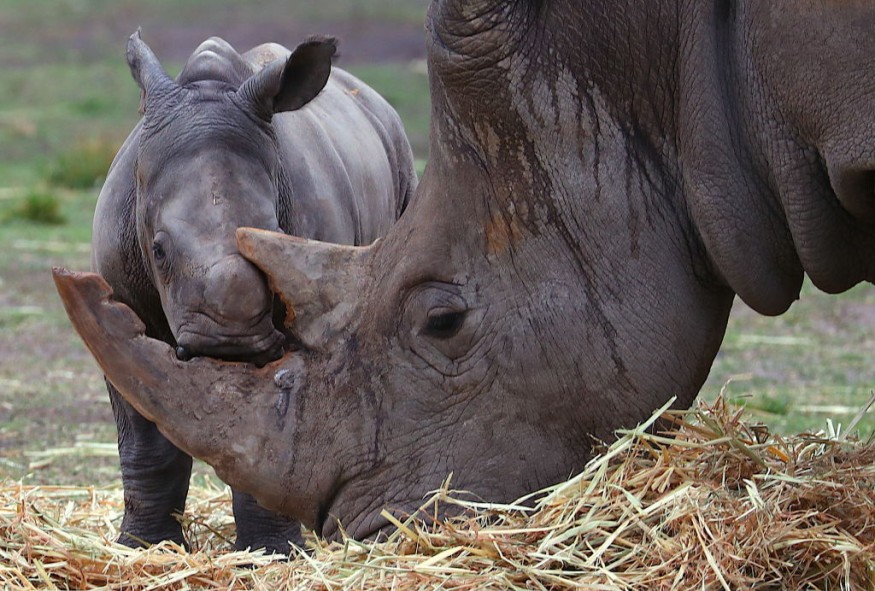Kenya announced that no rhinos were poached in 2020. This is the first time in more than two decades that this has occurred.

The announcement came on World Wildlife Day, held every year on March 3, to recognize and increase awareness of the world's wild animals and plants.
Poaching is at an all-time low, according to new figures from KWS, following the start of COVID-19 and travel bans in many African countries.
No Rhinos Poached: Kenya Records A First After Two Decades
KWS Director-General Brigadier (Rtd) John Waweru said in a statement that rhino poaching had decreased from 59 cases in 2013 when poaching was at its height to zero cases in 2020. That was the last time this achievement was done in 1999.
The wildlife agency said it had taken a range of actions to curb smuggling, including bolstering anti-poaching and intelligence-led law enforcement initiatives. To mitigate poaching, it has expanded cooperation with partners, law enforcement authorities, and local governments.
KWS Director General Waweru said per Africa CGTN that the wildlife agency's next goal is to perform the same feat with elephants.
The growing demand for farmland and space for human settlement, according to the KWS, has resulted in a rise in human-wildlife conflicts.
How They Did It
Waweru said collaborating with stakeholders, anti-poaching, and intelligence-led operations have declined in rhino poaching.
According to KWS, there were increased risks of poaching during the COVID-19 pandemic era. The authority saw an uptick in bushmeat poaching and related crimes.
ALSO READ : Increased Black Rhino Population Prompts Hope
Elephant poaching has also decreased from a high of 384 cases in 2012. When poaching was highest, to a historic low of 11 in 2020, the lowest ever in KWS history, Sustainability Times claimed.
According to the KWS manager, the authorities' ability to hold poaching down amid lower footfall during the COVID-19 pandemic is "not by chance; it's thanks to a lot of hard effort and dedication."
Kenya Aims on Zero Poaching For Elephant
Waweru said per Andalou Agency; they are working towards zero poachings for elephants.
"Kenyans should support our efforts and, most importantly, visit our parks. You can now adopt rhinos, and we will soon be naming elephants," he said.
He claimed that they do not like losing wildlife. For the first time in KWS history, the numbers are considered a huge accomplishment since Kenya has been losing over 340 elephants every year.
According to Kenya Wildlife, Kenya had a rhino population of 1,258 by the end of 2017 (745 black rhinos, 510 southern white rhinos, and 3 northern white rhinos). The last male northern white rhino died, leaving only two northern white rhinos in Kenya and around the world.
Until 1970, some 500 northern white rhinos roamed many East and Central Africa countries, south of the Sahara. By 1980, poaching had decreased the species' population to 15, and by 2003, it had dropped to 32. Just two female rhinos exist, all of which were bred in captivity.
RELATED ARTICLE : The COVID-19 Pandemic Leads to Increase in Animal Abuse and Abandonment: Here's Why
Check out more news and information on Animals on Science Times.
© 2026 ScienceTimes.com All rights reserved. Do not reproduce without permission. The window to the world of Science Times.










